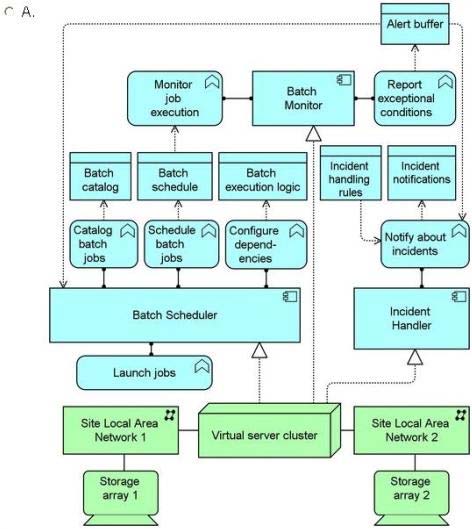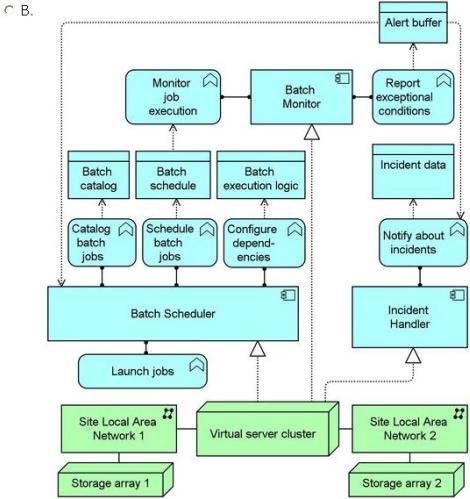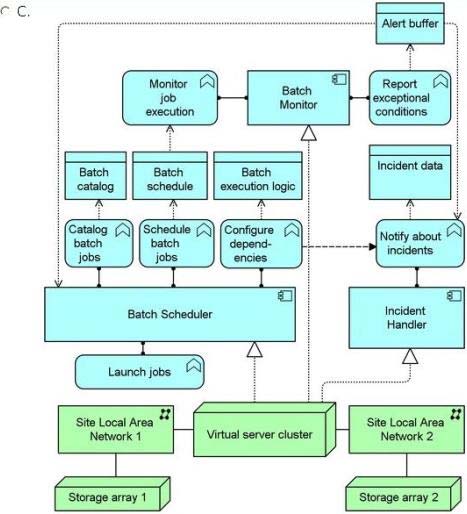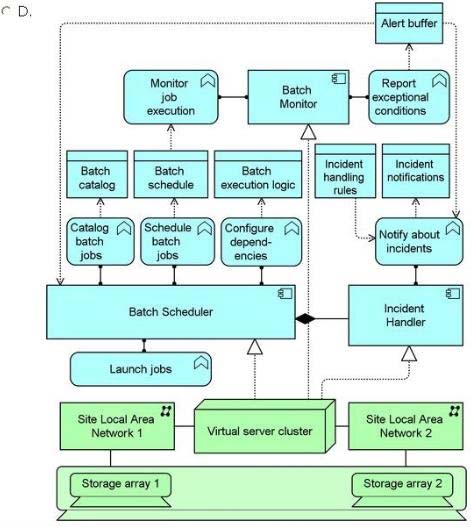

Scenario -
Please read this scenario prior to answering the question
The ArchiSurance IT Operations (IT Ops) department has five core responsibilities, and continuously executes a core business process for each responsibility. (1)
The Batch Ops process makes sure that batch jobs execute completely, successfully, and on time, consistent with their service level agreements (SLAs). (2) The
Online Ops process makes sure that all web applications and content delivery services are available and performing according to their SLAs. (3) The Security Ops process protects ArchiSurance IT operations from being damaged by malicious or careless incidents. (4)The User Support process assists users of ArchiSurance systems with problems or requests. (5) The Continuous Improvement process monitors and measures the performance ot each of the other processes and works to solve problems and optimize use of ArchiSurance resources. In order to enable monitoring, each of the other processes generates monitoring data that is read by the Continuous Improvement process.
The processes in the System Ops category, which are Batch Ops, Online Ops and Security Ops, each have a separate sub-process for incident management.
These sub-processes are triggered, respectively, by Batch, Online and Security Incidents. One of the first steps in each incident management sub-process, is to pass an Incident Alert to each of the other System Ops processes. This is accomplished by posting the alert to the Alert Buffer.
The Batch Ops process uses a schedule that lists all batch jobs and their dependencies. The schedule is used by two Batch Ops sub-processes. The Batch
Planning sub-process updates this schedule for use by the Execution Management sub-process.
The Batch Ops process uses a number of applications that interact with each other. The Batch Scheduler application enables users to manage a database of jobs, job schedules and dependencies, and launches batch jobs according to the database. The Batch Monitor application uses the job schedules as a reference to monitor job execution, and reports all exceptional conditions to the both the Batch Scheduler and the Incident Handler applications via the Alert Buffer described earlier In the scenario. The Incident Handler refers to a set of business rules to determine the systems and individuals that must be notified of each incident.
Based on these determinations, the Incident Handler produces appropriate notifications.
Due to their critical ity, the Batch Scheduler, Batch Monitor and Incident Handler applications are hosted redundantly in multiple geographically distributed data centers. In each data center, the three applications are hosted on a fully redundant virtual server cluster. Each cluster is connected to two site local area networks, each of which connects to a separate physical storage array.
Refer to the scenario -
As part of an IT service management initiative, you have been asked to show how applications and infrastructure support the Batch Ops process. Model the applications, their functions, the data they access, and the infrastructure that hosts the applications and data, along with the networks that connect the servers. It is only necessary to model a single data center.
Which answer provides the most complete and accurate model?



CloudArchitect
10 months, 2 weeks ago